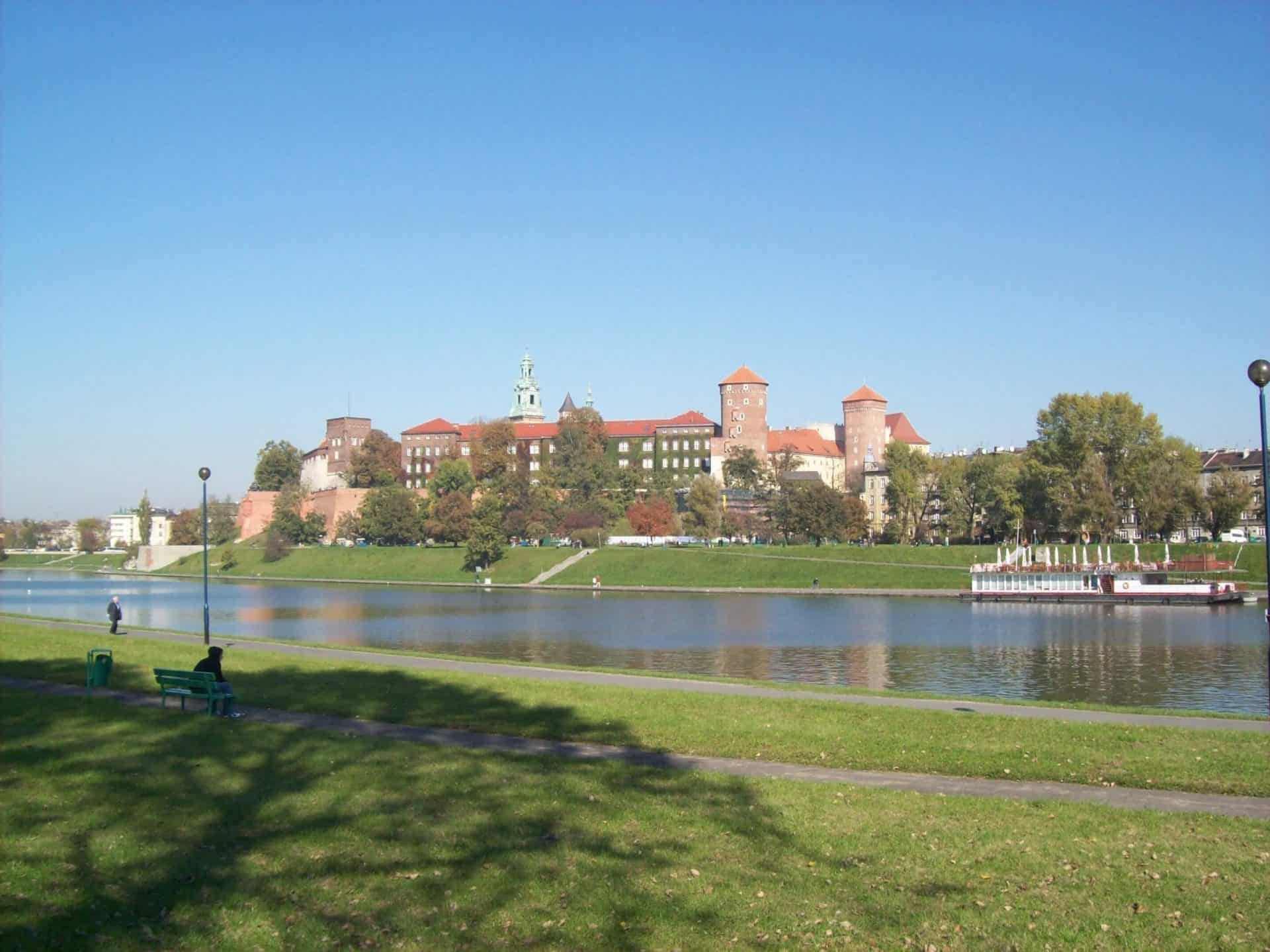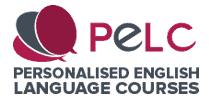Is TEFL a good career choice?
It’s funny, but I doubt few teenagers dream of going abroad to teach English. Most answers to the question “Is TEFL a good career choice?” probably evoke some very frank responses: “It is if you don’t want to earn much money”. Or, “It is if you want to broaden your horizons”. Perhaps, “Well, I didn’t know what else to do with my life, so it was ok for me.”
Was TEFL a good career choice for me? I think that it was. I had a very topsy-turvy start to my career. Today, some fifteen years after teaching my first class, I’m able to dictate who and when I teach as a freelancer. I’m also looking to branch out into language learning app development. Maybe the world isn’t my oyster, but I feel well-placed to reach my goals.
The aim of this post is not to wax lyrical about TEFL, nor to cajole wayward twenty-one year olds to pack their bags and head abroad. Frankly, I’ve seen everything in the classroom - the good, the bad and the ugly. Hence, it’s vital that I strive for impartiality here.
Perhaps, this is just me opening up about myself. For once.
THE ROAD TO TEFL IN POLAND
I was in the second year of my history degree at Nottingham Trent University when I met Paweł. In a nutshell, without barely knowing each other, Paweł invited me to Poland in the summer of 2005. For the life experience I'd gain, it was an offer I couldn’t refuse. The journey from Nottingham to Krakow by bus was just as memorable as my first stay in Poland and the culture shock I encountered.
Back in the UK for my final year at university, my mind was on all things except modern history. Frankly, TEFL became a far more attractive proposition than dealing with secondary school students in the UK. Hence, I met Paweł at just the right time. Boy, does life have a way of working itself out sometimes. If I had gone on to become a history teacher, I predict that I would have become a dissatisfied soul. I would have detached myself from my strengths and passions - writing, language, ENGLISH.
I’d always been a man of “words”. Whereas I was always one of the worst in my year at school when it came to science and the arts, I had talent when it came to descriptive writing, spelling and reading.
In the Autumn of 2005, I applied to do the CELTA course at International House, Kraków (no longer in operation) the following summer. There was no backing off - I had set the wheels in motion to become a "tefler".
THE CELTA IN KRAKÓW
To become a “tefler”, I had to gain an entry-level qualification to teach English abroad. It quickly became apparent from my research online that the CELTA was the most internationally recognised English Language Teaching certificate in the world.
I vividly recall the phone interview I had with one of the course leaders. After asking me what the weather was like where I was, he asked me some tricky questions about English grammar. Frankly, I didn’t have a clue how to answer them. It was a huge wake up call for me. Logic told me that if I planned to teach my mother tongue, then surely I had to familiarise myself with the ins and outs of its grammatical system.
Anyhow, I flew to Kraków in July, 2006. It turned out to be the warmest July in Poland since meteorological measurements began in 1779. With the intensity of the CELTA, and the incessant barrage of 35-degree days and sultry nights, it was a punishing time for me.
Frankly, I was disappointed with the CELTA and the course tutors. Admittedly, the course does what it says on the tin - it puts prospective teachers in front of a group of students. However, my course tutors wasted so much time denouncing TTT (teacher talking time) and getting course participants to discuss trivial matters in small groups. Don’t get me wrong. Collaboration is fine from time to time. However, I expected more lectures on methodology and teaching techniques.

Magic Kraków
IS TEFL A GOOD CAREER CHOICE? - STICK AT IT
I will now describe some of the key phases in my career in English Language Teaching.
First year in Poland
It would be fair to say that I didn’t set the world alight in my first year teaching because I was methodologically inept. Like most inexperienced EFL teachers, the coursebook was my bible. Laughably, the grammatical syllabus was my saviour.
My students may have learned plenty of new words. However, I doubt that they improved their collocational knowledge nor used applied any of the tenses they learned about in class in real-life conversation. It’s one thing to fill in gap fill exercises but quite another to produce the grammar in conversation.
The only advice I can give to new teachers is to focus on teaching multi-word units (i.e. collocations) in a range of contexts. Moreover, they should focus on tenses which speakers of English use most often in conversation, for example, the present simple.
TEFL IN BOSNIA - as you do
After Dębica, I worked at a school in a small town in north-east Bosnia. I always knew that I’d return to Poland at some point. However, my mentality at that time was to broaden my horizons and see the world. After all, I had travelled around the United States before Bosnia.
A few days into my time in Bosnia, it became apparent to me that I would have to work my fingers to the bone to satisfy my boss’s demands and perfectionist tendencies.
The early September heat was unbearable and I was a long way from home. I cannot put the culture shock I encountered into words. Frankly, I wanted out of Bosnia after only three days.
Sitting in the shade in the 40-degree heat a few days in, the question “Is TEFL a good career choice?” did its deadly rounds in my mind.
In this game, there will be plenty of desperate moments like this. You may think to yourself - what have I got myself into? How do I explain the gap in my CV if I walk away?
Miraculously, I didn’t walk away from that school in Bosnia. Despite the long days, prejudiced colleagues, all the ridiculous administrative tasks and generally unmotivated students, I stuck it out to the end of my contract.
I believe my year in Bosnia turned me into an extremely resilient character who’s prepared to dig in when the going gets tough.
It was an experience that changed me and the course of my life.
TEACHING AT SUMMER SCHOOL
When you’re left with nothing to do over the summer holidays, apart from mull over your next career move, you might want to teach international students at summer school. I did just that in the summers of 2007 and 2008.
In the summer of 2007, I worked at Sevenoaks School for Thames Valley Summer Schools (TVSS). Thames Valley had been working in partnership with Sevenoaks School since 1992.
These summer schools have nothing to do with teaching and career development. Again, it’s about character building and learning that the less people there are in a bubble, the healthier your mental state will be. In Sevenoaks, I got into a bit of trouble with some Spanish and Italian kids and their interfering “carers” who travel over to the UK with them. The less said, the better.
In the summer of 2008, I did a stint for Bell at Wellington College, in Berkshire. This was more enjoyable than the previous summer as the children were more pleasant to teach and my colleagues were not so stuck-up. Furthermore, the habitually drunk Director of Studies provided ample entertainment value.
EARLY DAYS IN TEFL - NOT ALL GLAMOROUS BUT CERTAINLY CHARACTER BUILDING
For most new ESL teachers, the early days of their career probably won’t be glamorous. However, if you get your head down, build your stamina and resilience and work on your teaching skills, the rewards will come later on.
You’ll be at a serious advantage if you begin to work out your beliefs about teaching and language learning early doors. It took me three or four years to begin to nail down my beliefs as an EFL teacher. Admittedly, I was rather lost in the classroom for a few years - before I did my Master’s in English Language Teaching in 2009.
MAKING THAT TRANSITION FROM TEFL TO EAP
The TEFL teacher can be extremely versatile.
In the summer of 2010, while writing my dissertation for my master’s, I got a job as a pre-sessional tutor with the University of Coventry.
The pre-sessional tutor’s role is to teach English for Academic Purposes (EAP) to international students in order to prepare them for full-time degree study. EAP tutors generally teach language and study skills through the use of academic listening and reading texts. The traditional EAP reading/writing tutor may often share their group with another listening/speaking tutor.
Career-wise, I began to find myself in Coventry. The word “rewarding” is bandied about a lot in this line of work, but there’s no other word to describe the satisfaction one gets from preparing a group of learners to study full-time in an unfamiliar academic environment.
For the following four summers, I worked as an EAP tutor at The University of Southampton. I thoroughly enjoyed the work and being on the south coast of England.
Overall, those five summers in the UK confirmed to me that I’d never teach kids in private language schools again.
MAKING THAT TRANSITION FROM TEACHING IN PRIVATE LANGUAGE SCHOOLS TO FREELANCING AND IN-COMPANY TRAINING
The last language school I worked for was in the small Polish city of Płock. Amazingly, it’s been nearly 15 years since I taught English to kids. How time flies.
After finishing my first summer stint in Southampton in 2011, I wasn’t in any hurry to return to the classroom. In fact, I went down to the English city of Bath for a few weeks that autumn to study for the Certificate in International Business English Training (Cert IBET) qualification.
By December time, I began to get itchy feet again. Hence, I applied for a job in Łódź, Poland, to teach English in-company. After a conversation with the English owner of this education company, I was offered the job. I flew to Łódź on January 1, 2012.
I've written about my experience living and working in Łódź. Essentially, I began to supplement my regular job with a healthy cohort of keen and very pleasant private students.
I got so many calls from eager business people looking for private classes. Frankly, it gave me much peace of mind to know that I could dictate my own schedule and make it as a sole trader if I wanted to in the future. Despite a rocky start to my career, I would have answered the question “Is TEFL a good career choice?” very positively after an extremely satisfying 18 months in Łódź.
Frankly Speaking: A bit about me and my time in TEFL
Well, life as a TEFL teacher is certainly never dull. Let’s dive in to see what I’ve witnessed in the classroom over the years, and a bit more about me ...
What's the most bizarre class or experience I’ve ever had?
One experience probably stands out in my mind. I taught many unmotivated kids in Bosnia. Nevertheless, I also worked with some extremely bright and talented kids there.
One day, my boss told me to enter a classroom to teach an eight-year-old child I had never met before. I had no idea that I would be teaching this session. Anyway, my boss told me that I “should experience” what it was I was about to experience. The only order I had to follow was - “just read to him and ask him questions.”
So, this small boy with an American accent proceeded to fidget and fiddle around with his toys. I assumed that when I started to read, he would stop fidgeting and pay attention to me. He didn’t.
When I reached the end of every page of the book I was reading aloud to him, I would ask him a series of comprehension questions. Of course, I assumed that he wouldn’t know any of the answers.
He answered every single question correctly, quoting what I’d read word-for-word.
I left the classroom after an hour in a state of shock.
What's the worst class I’ve ever taught?
I don’t remember any “bad” classes in terms of technique or things going wrong. However, I had one group of young teens in Bosnia that was totally out of control. The worst thing was that there were a few adults in this group who didn’t learn anything for an entire year because I was too busy trying to stop those teenagers from starting a riot.
A complete and utter nightmare. I didn’t get any help from my boss who should have just given the group to another teacher who was better at crowd control than me.
Only Europe - not Asia or South America?
The thought of teaching on another continent never really crossed my mind back in my peak TEFL days. Intriguingly, I had a few half-serious offers from a few acquaintances to go and work in China and Hong Kong.
Still, who knows what the future holds? If I were to work in a country outside of Europe, it would have to be Japan. Japanese culture and traditions seem to be really unique.
As the saying goes - there’s life in the old dog yet. I might make it over to Japan before I turn 50.
What was my dream job growing up?
I always dreamt of becoming a journalist when I was a teenager. Then, while writing a film script for a piece of coursework I did at college, I set my sights on becoming a screenwriter. I still think about it now. After all, I’ve had plenty of interesting life experiences which I could use a stimuli for a story.
Is TEFL a good career choice?
Yes, but it might not be all roses from the get-go.



